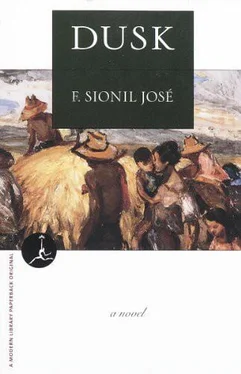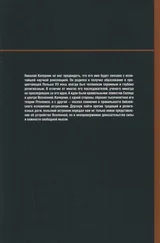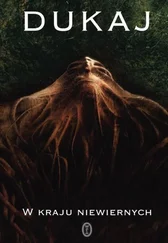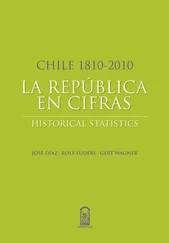On this day, Istak had gone to the delta, to Sipnget, to attend to a sick boy whose father had come to him begging with an offering of two live chickens. Istak always helped even if there was no gift. More than a decade had passed since they had crossed the Agno for the first time and always, upon reaching the river, he prayed for the soul of his mother.
It was late in the afternoon when he returned to Cabugawan. The rains had paused and the sky was clear. As he entered the arbor of bamboo which shaded the village lane, he saw Kimat, Don Jacinto’s horse, tethered to the gatepost.
The rich man was waiting in the yard, talking with Dalin. Soon it would be dark; the leaves of the acacia had closed and cicadas announced themselves in the trees. From the distance that was Rosales, the Angelus was tolling, and after Istak had greeted Don Jacinto, they stood still in silent prayer.
The rich man did not come often to Cabugawan, not even during the harvesttime; he had entrusted his share to the honesty of men like Istak, and the settlers had not failed him. He was burdened with having to run the town at a time when chaos and lawlessness prevailed. He had done this well, relying not on force but on the respect that the people had given him. He was, after all, the only one from Rosales who had gone to Manila to study.
“I have been waiting for some time now, Eustaquio,” he said, smiling. In the dimming light, his face was drawn and pale, even stern. “Your Dalin and your two boys have been very good company. I even had a taste of suman and a cup of your new basi . I say it is ready, although Dalin says it is not.”
“You are a better judge of that than I, Apo,” Istak said.
“I came here to take you to town,” he said. “Now — if you have nothing else to do. I have a guest … you know that, don’t you?”
Istak nodded. “It cannot be hidden, Apo. Not in the way he arrived. Most of all, because he is with you.”
Dalin wanted them to eat supper first. She had broiled a big mudfish and the pot of rice on the stove was already bubbling. Don Jacinto demurred; they must hurry and they could very well eat in his house.
On both sides of the darkening trail, the fields spread out, deep green in the fading light. Soon they would turn yellow and golden with harvest. Istak walked beside Don Jacinto, who was astride his horse, mosquitoes and moths around them, the frogs tuning up in the shallow paddies.
“What do you know of my visitor, Eustaquio?”
“Nothing much, Apo. That he is your old friend.”
“Nothing can really be hidden in this town,” Don Jacinto said. “Still, you must remember that there are spies, people brown like you, and we must make his presence as secret as possible. The Americans are no different from the Spaniards. Do you think it matters that we are destroyed as long as they get what they want?”
Istak did not speak. He had always been circumspect before those who wore shoes and jackets. He had long believed that only by listening would he be able to acquire more knowledge.
Don Jacinto noted his silence. “I did not get you so that we could discuss the politics of acquiescence,” he said. Then he explained what had happened — both the Cripple’s *manservant and secretary were ill and had left. And now, the Cripple himself was not well. He was always perspiring. Something was wrong with his urine — it was darker than usual and pains were shooting up his sides. The mention of pain in his sides alerted and alarmed Istak, but he could not be sure until he had seen the sick man.
It was already night when they reached Don Jacinto’s house. Like most of the people of Rosales, Don Jacinto’s father came from the north. He had done the cartilla in Rosales and then went on to Manila, and upon returning, he acquired more land. His father was an enterprising trader and knew how to please the friars as well. More than that, he had his son learn not just the intricacies of the law but how to deal with officials. No one in Rosales had suspected that the man who was very friendly with the friars and the capitán of the Guardia in Urdaneta, who often played chess and drank sherry with him, was actually a member of the northern revolutionary junta. They did not know that when studying in Manila, he had met other young ilustrados who were to lead the uprising against Spain.
Now, he was cabeza , and though there was not a single soldier in town, Rosales was peaceful. The town fiesta in June, which should not have been held anymore if only to protest against the friars who instituted it, was held just the same with the comedia and all the delightful entertainment that he arranged.
The oil lamps in the big house were all lighted and frames of yellow glimmered from the shell windows. The dogs in the yard howled, and out of the open gate, a man on a horse galloped into the night.
Don Jacinto reined in his mount. “I hope he did not bring bad news from Tarlak,” he said softly, more to himself than to Istak, as he cantered into the yard.
Up at the great house, in the sallow glow of the lamps, the red floor shone, the porcelain pedestals stood serene in corners, the carved wooden chairs with crocheted covers were all in place as if the house were not intended to be lived in. Istak followed Don Jacinto across the polished hall to the azotea beyond, and to an open door which led to a large room. It was better lighted than the hall itself — a new Aladdin lamp dangled from the ceiling, ablaze with light, and at both ends of the massive table, two other lamps were perched. Don Jacinto’s visitor was seated at the table, a sheaf of newspapers before him. The Great Man wore a white cotton shirt that hung loosely about him as if it were too big. Though young, he looked wasted and had a sickly pallor. He was poring over papers, shaking his head and cursing under his breath. Istak could make out the “sin vergüenzas” as they erupted in an almost steady stream.
“I hope it is not bad news, Apolinario,” Don Jacinto said in Spanish.
The Cripple did not even look up from what he was reading. “It is always bad news now, Jacinto,” he said, also in Spanish. “We are facing a superior enemy, as you very well know, with far more resources than the Spaniards. And still we haven’t learned. Our generals quarreling. No discipline! And these Americans, they also have the means to tell the world how righteous they are …”
He finally turned to them, flailing a sheet of paper. “Here is the latest outrage by their correspondent, this wretched Thomas Collins — calling our soldiers cowards who refuse to fight in the daytime — that when we fight at all, we are always running.”
“But wasn’t that what you wanted, and General Luna, too?”
“Of course, of course!” the Cripple exclaimed and drew back, sitting straight. Beside him was a reclining chair and with great effort he eased himself into it. Don Jacinto strode forward to help him, but the Cripple waved him away, saying, “I told you, I told you …”
The Cripple drew a shawl over his wasted legs. “A guerrilla war — that is what we must now wage. But General Aguinaldo — forgive me for saying this — he is selfish and stupid. He is envious of generals like Luna who tried to put some discipline into the army. Luna is dead, killed by the same people he sought to discipline. We lost a good leader, one who could build a fighting force from the rabble … and yet, much as I loathe Aguinaldo and disagree with him, he is now the symbol of resistance against the enemy. My personal feelings—” He paused and looked upward to the ceiling adorned by an unlighted chandelier. The soft, warm voice continued: “How can I reply to their charges, show that we are ready to rule ourselves? And when are a people ever ready? Should another race determine that for them? Our constitution — it embodies our national sentiments and can stand as a document of freedom with any other free constitution in the world.” He dropped the sheet of paper on the floor.
Читать дальше












